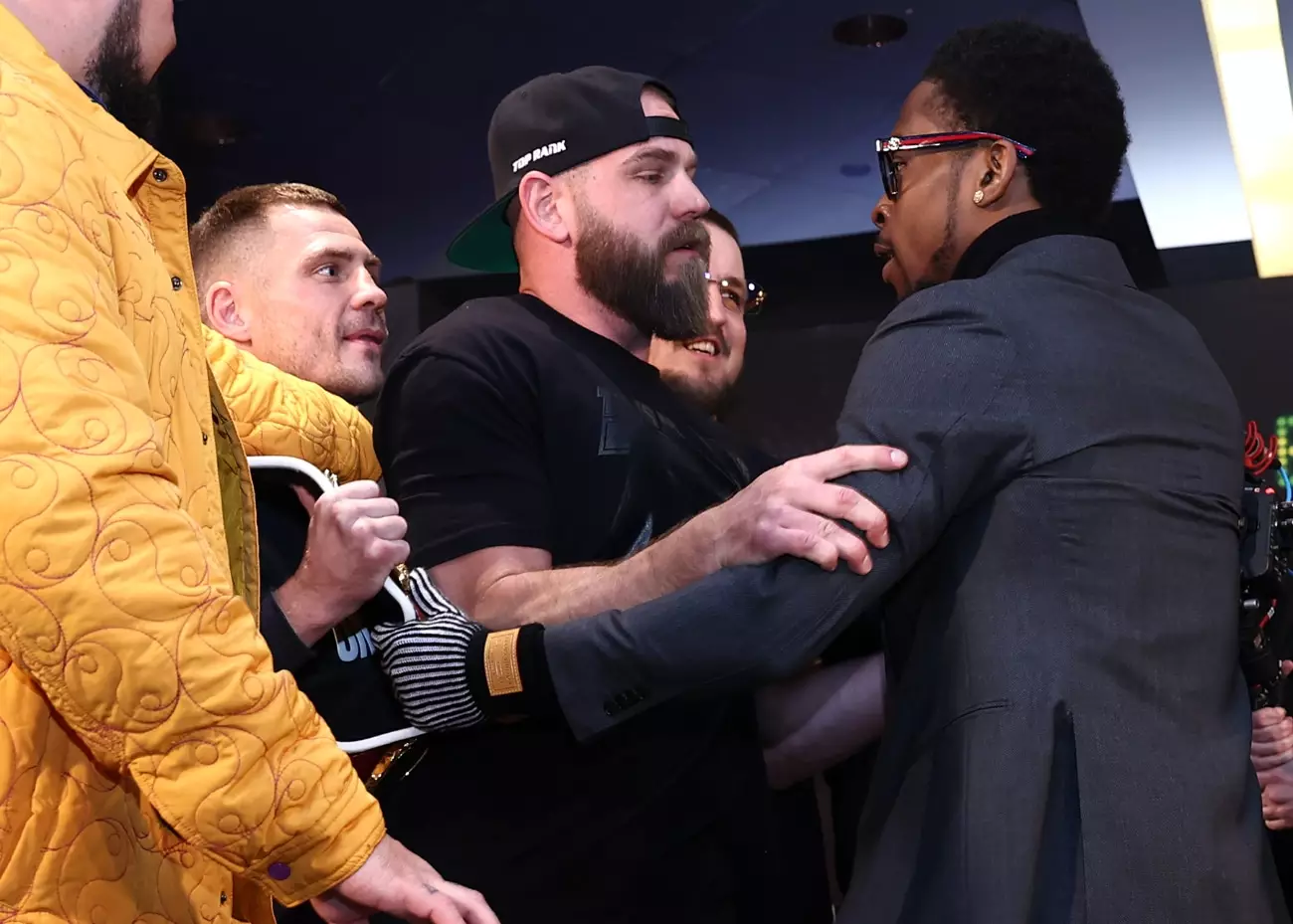In recent days, the boxing world has been sent into a frenzy due to an escalating dispute involving well-known fighters Teofimo Lopez, Keyshawn Davis, and WBO lightweight champion Denys Berinchyk. The situation began when Davis publicly accused Berinchyk of racism after receiving a curious delivery of bananas and watermelons to his hotel room. With accusations of this nature carrying heavy implications, misunderstandings and conjectures have pushed this story into the spotlight, igniting debates on race, reputation, and accountability in the sport.
The Nature of the Accusation
Keyshawn Davis’s critique stems from his belief that Berinchyk was behind the offensive delivery. Despite having no tangible proof to substantiate his claim, Davis labeled Berinchyk a racist during a press conference, a declaration that cannot be made lightly. In many ways, the act of labeling someone a racist carries profound consequences, capable of damaging reputations and careers. To compound matters, Teofimo Lopez’s subsequent snickering response on social media has intensified speculation that he may have orchestrated the prank as a way to provoke Davis. The internet is rife with theories regarding Lopez’s involvement, with fans hypothesizing that he aimed to undermine Davis by inflaming tensions between him and Berinchyk.
While it could be considered a harmless prank in another context, the charged atmosphere surrounding racial discussions renders such actions serious business. Consequently, if Lopez is indeed the prankster, he inadvertently shaped Berinchyk into a victim of unfounded accusations. The ramifications of these actions extend beyond humorous intent, further complicating an already delicate situation.
The Impact of Reckless Allegations
Davis’s firm assertions against Berinchyk underline a troubling reality in sports, wherein claims of racism can spiral out of control without concrete evidence. Berinchyk has vehemently denied sending the controversial package, yet the repetition of the accusation by Davis contributes to a toxic narrative that could damage the fighter’s public image and career. Such public denouncements are detrimental, not only to Berinchyk’s reputation but also to the fabric of sportsmanship.
Accusing someone of racism is not merely a trifling matter. It can lead to broader societal discussions, mobilize communities against an individual, and potentially impact sponsorships and partnerships. Thus, Goodman and Davis’s lack of substratum for their comments not only tarnishes Berinchyk’s character but raises questions about accountability in a sport that prides itself on integrity in and out of the ring.
Amidst this chaos, Davis articulated an ambition that focuses on earning respect through championship success. He stated, “I just feel winning a world title will make me the best. I don’t care who is in the ring with me.” His determination is evident, yet it is essential to note the contradiction in how he approaches potential opponents. While he previously expressed a willingness to face Berinchyk before the latter captured the WBO lightweight title, he now distances himself from fighters like Andy Cruz, whom he perceives as lacking value due to their non-title status.
This calculated selection of competitors is an interesting strategy, particularly in a sport where risk is often rewarded with recognition. Many consider this an intentional avoidance of confrontations with fighters that could jeopardize his undefeated record or impede his path to becoming a champion. In this sense, Davis’s approach raises questions about authenticity and valor within the sport, especially as he interacts with fighters of varying ranks.
As this narrative continues to unfold, it exposes the delicate balance of competition and camaraderie that defines boxing culture. The interactions among Lopez, Davis, and Berinchyk serve as a microcosm of broader societal tensions around race and reputation. If we are to appreciate the sport, participants must engage responsibly, ensuring that their actions and words do not contribute to a cycle of misunderstanding and personal attacks.
The boxing community would benefit from a more mature discourse rooted in respect and evidence. This incident serves as a timely reminder of the significance of accountability, urging fighters, promoters, and fans alike to advocate for a culture built on truth, sportsmanship, and shared values. In doing so, the integrity of the sport can be preserved, ultimately promoting a healthier, more respectful atmosphere for all involved.

